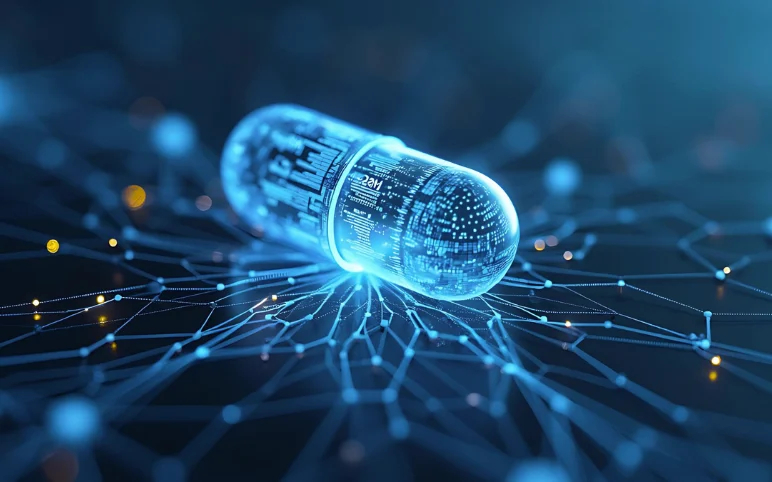The Rise of Energy Drinks: Power in a Can or a Health Hazard?
Jul 03, 2024
Table of Contents
Energy drinks have become a ubiquitous part of modern life, promising quick boosts of energy, enhanced mental alertness, and improved physical performance. These beverages are particularly popular among young adults, athletes, and professionals who often face demanding schedules and high levels of stress. However, the rise of energy drinks has also sparked significant debate regarding their health implications and long-term effects.
What Are Energy Drinks?
Energy drinks are beverages designed to boost energy levels quickly through a combination of caffeine, sugar, vitamins, and other stimulants. Typically consumed to combat fatigue or enhance alertness, they are known for their high caffeine content, which can range from moderate to very high compared to coffee. Energy drinks often claim to improve focus and physical performance, making them popular among students, athletes, and those with demanding schedules. However, concerns about their potential health risks, including caffeine overdose and dependency, have led to ongoing debates about their safety and regulation.
Downloads
Click Here To Get the Article in PDF
Recent Articles
- Laborie Medical Acquired Urotronic; Sirtex’s LAVA Liquid Embolic System; Paige’s Cancer Detection...
- FDA Grants Priority Review to Merck’s Application for KEYTRUDA Plus Padcev; Roche and Carmot Ther...
- Rise In Bispecific Antibodies Utilization As Antibody Therapeutics
- Nascent Advancements and Emerging Therapies in Chronic Pulmonary Hypertension Treatment Market
- Eli Lilly’s ZEPBOUND Surpasses WEGOVY in SURMOUNT-5 Trial; Verastem Oncology Secures FDA Approval...
Effects of Energy Drinks
Energy drinks can provide several benefits, particularly when it comes to improving mental alertness and physical performance. The caffeine content can help reduce fatigue, increase concentration, and improve reaction times. This makes energy drinks popular among students, athletes, and anyone needing a quick energy boost.
However, these benefits come with potential risks, especially when energy drinks are consumed in excess. High caffeine intake can lead to negative side effects such as:
Cardiovascular Effects: Energy drinks often contain high amounts of caffeine and other stimulants like guarana and taurine, which can elevate heart rate and blood pressure. Prolonged or excessive consumption may contribute to palpitations and irregular heart rhythms. Regular consumption of energy drinks can lead to hypertension, especially in individuals who are sensitive to caffeine.
Dehydration: Caffeine is a diuretic, meaning it increases urine production. Consuming energy drinks in large quantities can contribute to dehydration, especially when combined with physical activity or hot weather conditions.
Neurological Effects: High caffeine intake from energy drinks can exacerbate anxiety symptoms and increase nervousness. Due to their caffeine content, consuming energy drinks close to bedtime can disrupt sleep patterns and contribute to insomnia.
Digestive Issues: Some individuals may experience gastrointestinal discomfort such as stomachaches, nausea, or diarrhea due to the acidity and high sugar content of certain energy drinks.

Addiction and Dependence: The high caffeine content in energy drinks can lead to dependence and withdrawal symptoms such as headaches, irritability, and fatigue when consumption is abruptly reduced or stopped.
Metabolic Effects: Many energy drinks are high in sugar and calories, which can contribute to weight gain if consumed regularly without compensating with physical activity. Excessive consumption of sugary energy drinks is associated with an increased risk of developing type 2 diabetes, especially in individuals with predisposing factors like obesity.
Overall, while energy drinks can provide a quick energy boost, their consumption should be moderated, especially among vulnerable populations such as adolescents, pregnant women, and individuals with underlying health conditions. It’s essential to consider healthier alternatives like water, natural fruit juices, or beverages with lower caffeine and sugar content to maintain overall health and well-being.
The Debate: Are Energy Drinks Safe?
The debate surrounding the safety of energy drinks remains contentious, with arguments on both sides highlighting various concerns and benefits. Proponents argue that energy drinks provide a quick boost of energy and mental alertness, making them popular among students, athletes, and professionals seeking enhanced performance. They often contain caffeine, vitamins, and amino acids purported to improve focus and endurance. Advocates also point to studies suggesting moderate consumption may not pose significant health risks for healthy individuals.
Conversely, critics express serious reservations about the potential health hazards associated with energy drinks. High levels of caffeine, sometimes exceeding those found in coffee or soda, raise concerns about adverse effects such as increased heart rate, palpitations, and insomnia. Moreover, the sugar content in many energy drinks contributes to obesity and dental problems, particularly when consumed in excess. Critics argue that the marketing of these products to young people, coupled with their easy accessibility, raises ethical questions regarding their overall safety and societal impact.
In response to these concerns, regulatory bodies in several countries have imposed restrictions on the sale and marketing of energy drinks, particularly to minors. Health professionals advise moderation and caution, emphasizing the importance of understanding individual tolerance levels and potential interactions with medications or pre-existing health conditions. The ongoing debate underscores the need for further research into the long-term effects of energy drinks on health and well-being, balancing their potential benefits with associated risks.
Energy Drinks: Market Trends and Dynamics
In recent years, energy drinks have surged in popularity, becoming a significant segment within the beverage industry. As per DelveInsight analysis, the global energy drinks market is estimated to grow at a CAGR of 8.13% during the forecast period from 2024 to 2030.
This growth is fueled by several key trends and dynamics shaping consumer behavior and market trends. One prominent factor is the increasing demand for convenience and functionality in beverages. Energy drinks offer a quick boost of energy, often appealing to busy professionals, students, and athletes seeking performance enhancement or a pick-me-up during hectic schedules.
Another driving force behind the energy drink market is the evolving consumer preferences towards healthier options. As health consciousness rises globally, manufacturers are adapting by introducing low-sugar, natural ingredient formulations. This shift responds to growing concerns about the long-term health impacts of high-sugar and artificial ingredient-laden beverages, encouraging consumers to seek alternatives that provide energy without compromising health goals.
Moreover, the market is witnessing innovation in packaging, flavors, and marketing strategies aimed at different demographics. Energy drinks are no longer solely marketed to young adults; they are increasingly targeting diverse age groups and lifestyles, from fitness enthusiasts looking for pre-workout supplements to older adults seeking cognitive function support. As competition intensifies, brands are focusing on differentiation through unique formulations, sustainable practices, and transparent labeling to capture and retain market share in this dynamic industry.
Key Companies Working in Energy Drinks Market
The energy drinks market has become a highly competitive arena, with numerous companies vying for consumer attention and market share. These companies cater to a diverse demographic, ranging from athletes seeking performance enhancement to young professionals needing a quick energy boost. Red Bull, a pioneer in the industry, remains a dominant force with its iconic branding and global distribution network. Its focus on extreme sports sponsorships and innovative marketing strategies has helped solidify its position as a market leader.
Monster Beverage Corporation has also carved out a significant presence in the energy drinks market. Known for its diverse product line and bold marketing tactics, Monster appeals to a wide range of consumers seeking potent energy solutions. The company’s strategic partnerships in sports and entertainment further bolster its visibility and market reach, making it a formidable competitor to Red Bull.
In recent years, newer entrants like Bang Energy have disrupted the market with innovative formulations and aggressive marketing. Bang’s emphasis on zero-sugar, high-caffeine alternatives has attracted health-conscious consumers looking for energy drinks that align with their dietary preferences. The brand’s rapid growth reflects changing consumer tastes and preferences, pushing established players to innovate continuously to maintain their market share.

Some of the other key market players operating in the energy drinks market include PepsiCo, Inc., Suntory Beverage & Food Europe, T.C. Pharmaceutical Industries Company Limited, Taisho Pharmaceutical Holdings Co., Ltd., Lucozade Ribena Suntory Limited, Coca-Cola HBC, Amway Corp., Alliance Beverage Distributing, 5-hour Energy, XYIENCE Energy, Stokely-Van Camp, Inc., Carlsberg Breweries A/S, NEALKO ORAVAN, spol s.r.o., Mutalo Group, Asia Brewery Incorporated., Otsuka Pharmaceutical Co., Ltd., HELL ENERGY Magyarország Kft., Dali Foods Group Co., Ltd., and others.
Beyond these giants, smaller companies are also making waves by targeting niche markets with specialized offerings. These include brands focusing on organic ingredients, sustainable packaging, or unique flavor profiles to differentiate themselves in a crowded marketplace. As consumer demand for energy drinks continues to evolve, companies must adapt their strategies to stay relevant and capitalize on emerging trends in health, wellness, and sustainability.
The Future of Energy Drinks
The future of energy drinks appears poised for significant evolution, driven by consumer demand for healthier options and sustainable practices. As health consciousness grows, there’s a visible shift towards energy drinks that offer natural ingredients, reduced sugar content, and functional benefits like enhanced focus or stress relief. Brands are increasingly focusing on developing formulations that cater to specific consumer needs, such as mental clarity or sustained energy without the crash. This trend aligns with broader movements towards clean labeling and transparency in product ingredients, aiming to appeal to a more health-savvy demographic.
Technological advancements also promise to shape the future of energy drinks. Innovations in delivery methods, such as controlled-release formulations or nano-encapsulation of active ingredients, could revolutionize how energy is delivered and metabolized in the body. Additionally, the integration of smart technology into packaging could provide consumers with real-time information about the drink’s effects or even personalized recommendations based on biometric data. These advancements not only enhance user experience but also address concerns over the safety and efficacy of energy drink consumption.
Furthermore, sustainability will likely play a pivotal role in shaping the future landscape of energy drinks. With increasing awareness of environmental impact, there’s a growing demand for eco-friendly packaging and responsibly sourced ingredients. Brands are exploring options such as recyclable materials, biodegradable packaging, and sourcing ingredients from sustainable agriculture practices. This shift reflects a broader industry commitment to reducing carbon footprints and meeting consumer expectations for ethical and environmentally conscious products. As these trends continue to evolve, the future of energy drinks holds promise for innovation, health-focused solutions, and environmental sustainability.

FAQs
Yes. While caffeine can boost alertness and reaction time, certain ingredients like taurine or B-vitamins may influence mental focus differently than physical stamina, creating a unique “brain boost” separate from energy for exercise.
Individual metabolism, genetic differences in caffeine sensitivity, and even gut microbiome composition can dramatically alter how the body responds to energy drinks.
Emerging research suggests chronic consumption of high-caffeine, high-sugar energy drinks may influence cortisol levels, insulin response, and appetite regulation—but the long-term effects are still under study.
Not necessarily. Even sugar-free energy drinks contain stimulants like caffeine or artificial sweeteners, which can still impact heart rate, sleep, or gut microbiota. The absence of sugar doesn’t automatically eliminate health risks.
Potentially. With advances in wearable health tech and metabolomics, future energy drinks could be personalized to deliver optimal energy without overstimulating certain systems in the body.
Mixing can mask intoxication, increase heart rate unpredictably, and stress the nervous system, leading to hidden dangers even in otherwise healthy individuals.
Possibly. Marketing, peer influence, and the “performance-enhancement” appeal may shape risk-taking behavior, study habits, or late-night social patterns in young consumers.
Downloads
Article in PDF
Recent Articles
- Cell and Gene Therapies for Diabetes Treatment: A Permanent Cure for Patients?
- Potential of Digital therapeutics and increasing CVDs
- Lilly’s ZEPBOUND Clears Hurdle in Sleep Apnea Treatment
- FDA Approves Jardiance for Type 2 Diabetes; FDA Approves Pfizer’s LITFULO for Alopecia Areata; Sa...
- WEGOVY: A Leader in the Obesity and Weight Loss Treatment



